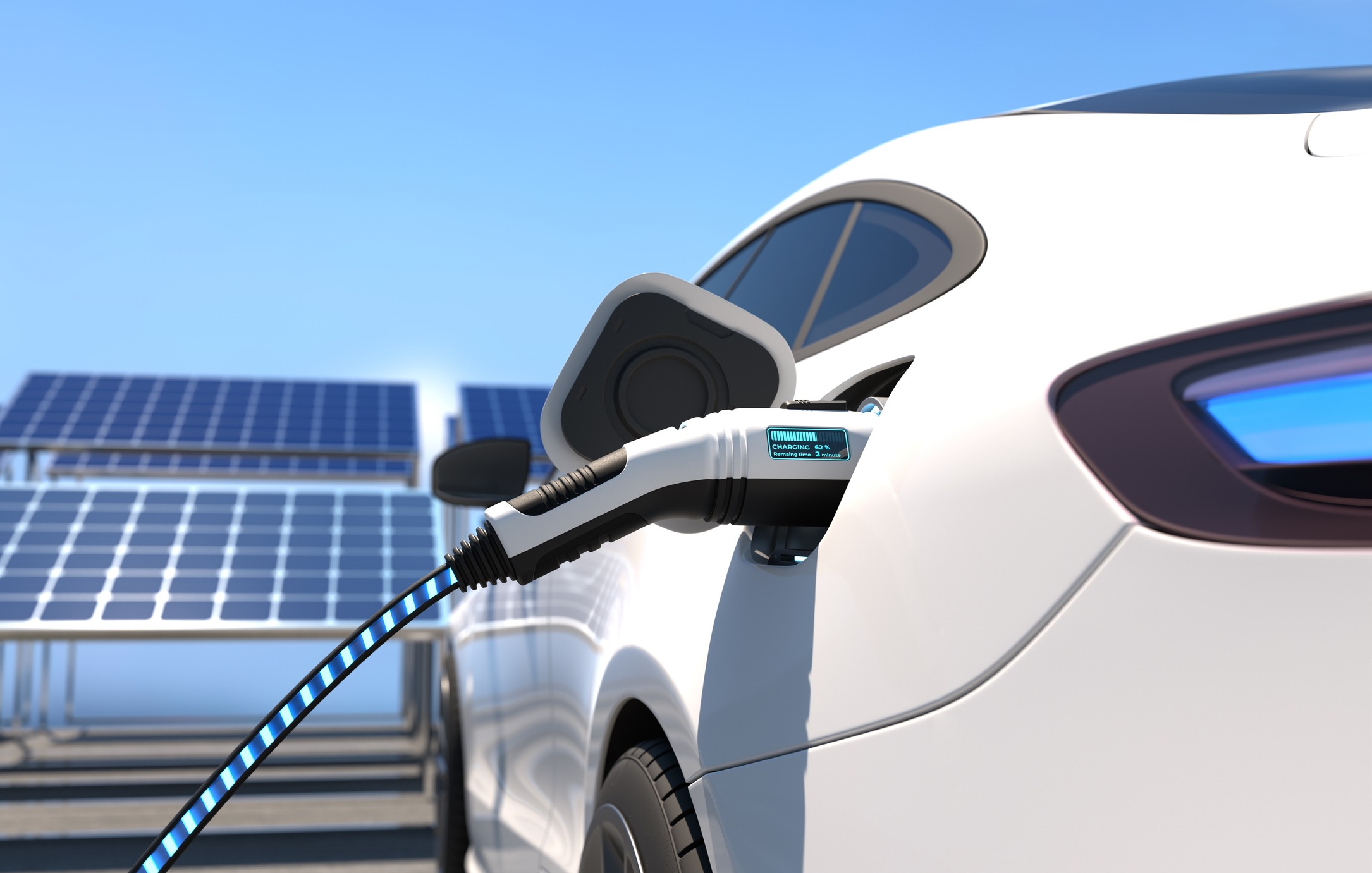A Complete Guide to EV Charging Installation in Guelph & the Tri-Cities: Installing Electric Car Chargers at Home

Electric vehicles (EVs) are becoming a common sight on the road, with more people embracing the benefits of clean energy and reduced emissions. With the rise of EV ownership, the need for convenient home charging solutions is also on the rise. Home charging not only enhances convenience but also prepares you for the future of transportation. This guide will walk you through everything you need to know about installing an EV charger at home, from evaluating your home’s electrical setup to choosing the right charger and understanding the costs involved.
Assessing Your Home’s Electrical System
Before installing an EV charger, the first step is evaluating your current electrical setup to ensure it can support the additional load. Here are two key factors to consider:
- Current Electrical Capacity: Most homes are equipped with either a 100-amp or 200-amp electrical panel. Since EV chargers typically require a 40-amp circuit or higher, a home with a 100-amp panel might need an upgrade.
- Electrical Panel Capacity: If your current setup can’t handle an EV charger, consider upgrading your electrical panel This is a good time to work with a licensed electrician who can assess your home’s needs and provide guidance. Contact our team today for a complimentary assessment
To help you and your electrician make an informed decision, consider obtaining a Peak Load Usage Report. This is obtained through your local utility provider and can only be requested by the homeowner (not your electrician). This report provides a detailed look at your home’s energy consumption and peak usage, helping you determine whether an upgrade is necessary.
Upgrading Your Electrical Panel in Guelph & the Tri-Cities
Your electrical panel is like the control center of your home. If it’s already full, there’s no space for more electricity—like an airport with no more parking spots. In this case, you might need to upgrade your panel, which is like expanding the airport to allow for more planes, or in this case, your EV charger.
In other scenarios, you may need a service upgrade – 100 to 200 amps for example. Homes with a 100-amp panel may not have the capacity for an electrical vehicle charger and other high-demand appliances. Upgrading to a 200-amp panel can ensure that your home can handle increased demand now and in the future. If you’re already considering an upgrade, going up to a 200-amp service can accommodate other energy needs you may have down the road, such as additional electric vehicles, air conditioning unit/Heat Pump, or other high-demand devices.
It depends on your needs whether you should upgrade your electrical panel or your service. Either of these options may be necessary to support the charging of an electric vehicle.
Choosing the Right Electrical Vehicle Charger
There are two main types of home EV chargers:
- Level 1 chargers: Use a standard outlet, like a slow cooker. They take longer to charge your car but get the job done.
- Level 2 chargers: Require a special outlet, like a convection oven, and charge your car faster and more efficiently. Most people prefer Level 2 for convenience.
For most people, a Level 2 charger is the preferred choice because it’s faster and more convenient. When choosing a charger, consider factors like the charging speed, the length of the charging cable, and any smart features like scheduling or WiFi connectivity. It’s all about finding the right charger to fit your lifestyle and your vehicle’s needs.
Installation Process and Permits
Installing an EV charger isn’t a DIY project; hiring a qualified electrician is essential to ensure safe and code-compliant installation. Here is what we can help with:
- Step-by-Step Installation: Our team will start by assessing your home’s electrical setup, then install the charger, often by mounting it on a wall in your garage or driveway. We will ensure that all connections are secure and that the charger functions properly.
- Permits and Compliance: All of Ontario requires a permit for EV charger installation. This permit ensures that the installation complies with local building codes, which reduces the risk of electrical hazards. Our team can help you navigate the permitting process to ensure compliance.
The cost of installing an EV charger varies based on several factors, including the charger type, electrical upgrades, and installation fees. Let’s explore these costs further:
- Equipment Costs: Level 2 chargers typically range from $500 to $1,500, depending on the brand and features.
- Labour and Permits: Electricians in the Guelph and Tri-city area generally charge between $500 and $1,200 for installation, though this can vary based on the complexity of the job. Electrical Safety Authority (ESA) permits typically cost $95 to $150 in the Guelph and Tri-City area
- Upgrades and Add-Ons: An electrical service upgrade can add $2,000 to $4,500 to your costs. An electrical panel change can cost between $1,000 – $3,000 The cost of a EVEMS is $1000 plus our labour).
EVEMS (EV Electronic Management System)
Additionally, An EV Electronic Management System (EVEMS) is a useful tool for managing your home’s electrical load. EVEMS monitors and balances power usage, allowing you to charge your vehicle efficiently without overloading your home’s electrical system. Our team can help you install and configure this system to ensure safe, cost-effective charging, and if this is a good fit your particular situation.
In total, most homeowners in Guelph and the surrounding area should budget between $1,500 and $5,000 for a complete EV charging installation, depending on the complexity of your setup and any additional upgrades.
EV Charging and Installation by Area
For residents in Guelph, Kitchener, Waterloo, and Cambridge, our team at Blais Electric offers reliable and professional EV charging installation services.
Guelph EV Charger Installation
We collaborate with top vendors, providing top-quality EV technology and ensuring that residents have access to the latest in EV charging. Whether you’re looking for a basic setup or a more advanced smart charger, our team can customize the installation to fit your home and lifestyle. Our knowledge of local regulations and installation requirements makes the process smooth and stress-free.
Kitchener EV Charger Installation
With extensive experience in EV charger installation, we guarantee a seamless setup process for Kitchener homeowners. We offer a personalized approach, understanding each homeowner’s unique needs and recommending the right charging solution accordingly. From permits to final testing, we manage each step professionally to provide a safe, efficient installation.
Waterloo EV Charger Installation
Residents of Waterloo can count on our team for customized charging solutions that fit your specific needs. We ensure compatibility with your home’s electrical system, so you can rely on safe, consistent charging for years to come. With our team at Blais Electric, you’re getting a dedicated service tailored to support your shift toward clean, sustainable transportation.
Cambridge EV Charger Installation
We are also available for Cambridge residents, helping homeowners transition smoothly to EV ownership with expertly installed chargers. Our local expertise ensures compliance with area-specific codes, giving homeowners peace of mind. Whether it’s a garage, driveway, or apartment complex, we provides tailored solutions suited to each space and need.
Benefits of Home EV Charging in Guelph & the Tri-Cities
Installing an Electrical vehicle charger at your home in Guelph, Kitchener, Waterloo, Cambridge or nearby offers multiple benefits:
Convenience
Home charging allows you to charge overnight, waking up to a full battery each morning. This eliminates the need to rely on public charging stations, saving you time and simplifying your daily routine. With home charging, you have the freedom to plug in whenever it’s convenient, so you’re always prepared for the next trip.
Cost Savings
Many utility companies offer off-peak rates, making home charging more economical. Taking advantage of these lower rates means you can save significantly over time, especially compared to gasoline refuelling costs. Plus, you can monitor your charging through smart features to further optimize energy use and costs.
Environmental Impact
Charging at home often means using cleaner, renewable energy sources, contributing to a more sustainable future. Every mile driven on electric power reduces carbon emissions, making a positive impact on the environment. By charging at home, you’re playing an active role in supporting green energy initiatives and reducing air pollution.
Conclusion
Installing an EV charger at home is an investment in convenience, savings, and the environment. By assessing your home’s electrical setup, choosing the right charger, and working with a professional electrician, you can enjoy the benefits of EV ownership without hassle. For homeowners in Guelph, Kitchener, Waterloo, and Cambridge, Blais Electric is ready to assist with professional installation services. Contact us to get started on your home EV charger installation and power your drive with confidence!

